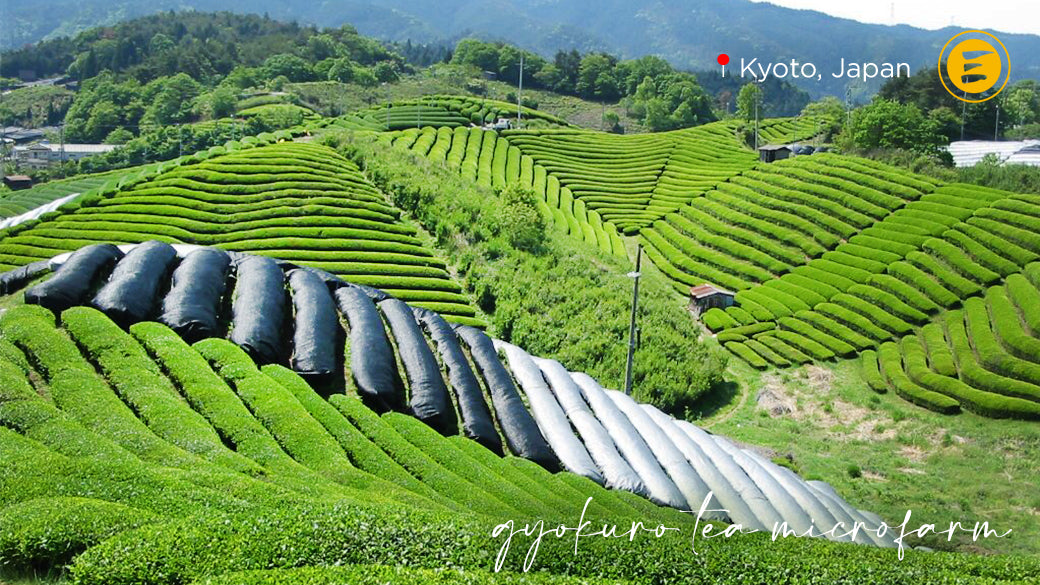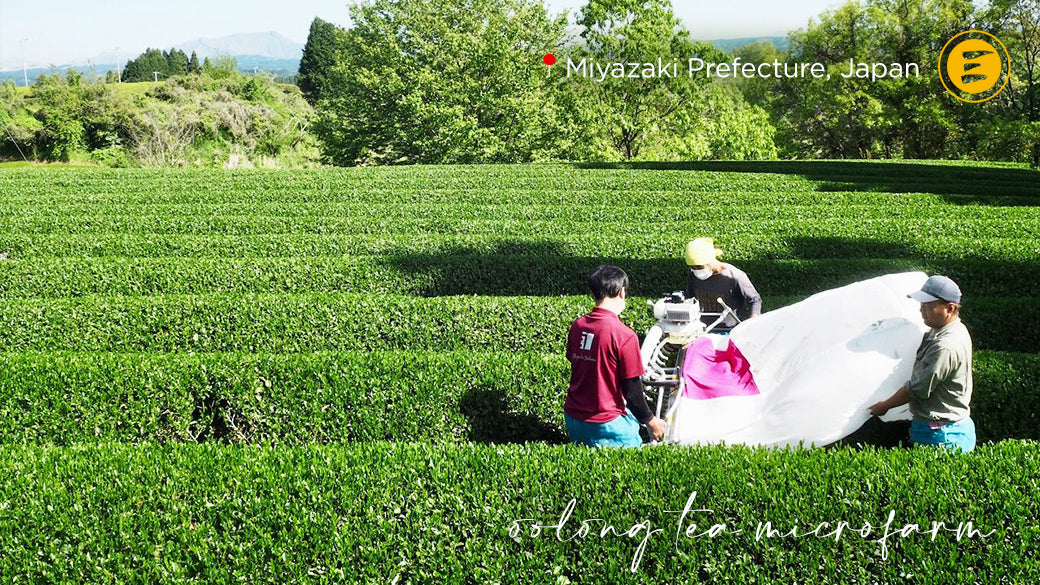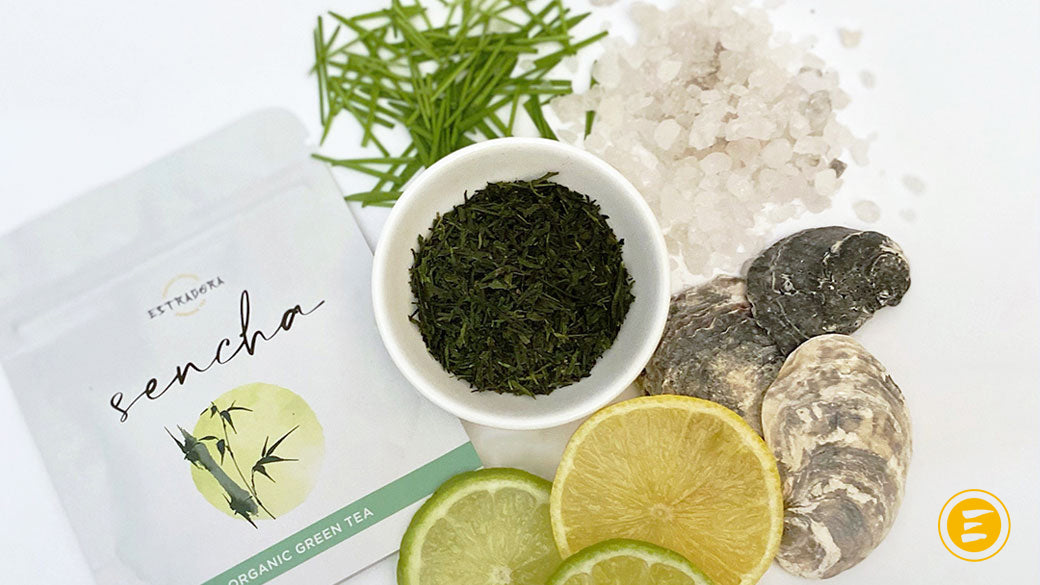Japanese tea artisans poetically conveyed the uniqueness of this green tea: it's harvested only once a year (late April), and plucked by hand, in limited quantities. Production requires high costs in growing the tea plants, and specific harvesting conditions. This explains the expensiveness of this tea.
Before harvesting, tea bushes are shaded with specific rice-straw screens or modern synthetic fiber mesh, for three weeks, exposing the leaves to less photosynthesis, preserving the plant's strong aromatic amino acids and giving Gyokuro a richer flavor.
Preventing direct sunlight slows the rate of photosynthesis, changing the chemistry of the tea leaves and creating higher levels of caffeine and theanine, key components that help energize, calm and protect cells from oxidation and irritation.


